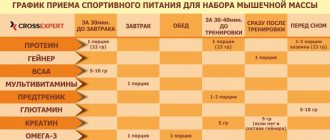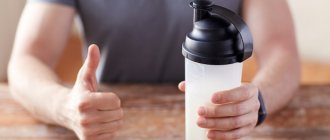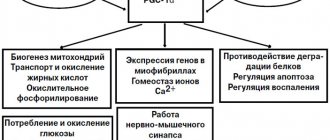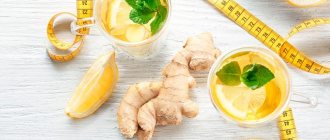The steroid Drostanolone with androgenic and anabolic action is available in the form of propionate (dipropianate) and enanthate - esters that determine the characteristic features of the drug. It is known to a wide variety of consumers under the trade names Masteron, Permastril, Metormon, Drolban. Both esters have the same effect on the body, but are absorbed into the blood at different rates. The duration of action of enanthate is about 15 days, and the effect of propionate occurs already on the second to fourth day after injection.
Drostanolone has a moderate anabolic but high androgenic effect and is an aromatase inhibitor with no effect on the conversion of testosterone to estrogens. The steroid is a derivative of dihydrotestosterone, has a similar effect, and has the chemical formula 2-alpha-dihydrotestosterone propionate. Both enanthate and drostanolone were initially used exclusively as breast cancer therapy, but were discontinued due to a high risk of virilization. Used for sports purposes, it is usually produced in ampoules with a volume of 50 and 100 mg/ml.
How does Drostanolone work?
The effect of the steroid drug is manifested:
- moderate diuretic effect;
- suppression of catabolic processes;
- increased strength indicators;
- a pronounced fat-burning effect, scientifically proven, when during research “experimental subjects” lost up to 5-7 percent of fat mass after completing the course;
- maintaining the muscle volume gained when taking the steroid, gaining muscle definition, hardness and density.
Athletes most often take the drug during drying, as well as in preparation for competitions.
What are the benefits of taking Enanthate?
With regular use of testosterone, accelerated rates of growth in muscle mass and physical strength are observed. It has a pumping effect. Due to the increased level of water accumulation, there is a positive effect on the joints. Starts the body's regeneration process. The overall tone of the body and the desire to exercise increases.
A good method to prevent overtraining. There is an increase in oxygen capacity in the blood.
But there is one big drawback: the high aromatization effect. This leads to gynecomastia, edema, and female-type fat deposition. Therefore, while taking the course, Enanthate should be combined with antiestrogens.
Enanthate detection time is 3 months.
Masteron solo course
To achieve the maximum effect from consuming enanthate and propionate, bodybuilders take from 400 to 500 milligrams of the steroid per week. Increasing the dosage does not lead to a noticeable increase in physiological parameters, but can cause the rapid and rapid development of negative side effects.
A solo course involves administering propionate three times a week or every other day, and enanthate only once every seven days. You should start using the steroid after visiting a sports doctor and undergoing diagnostics of the condition of the whole body. During the entire course, you must take appropriate tests, making adjustments to the program.
Drug: forms, manufacturers, price
Testosterone propionate is produced by many manufacturers, as it has long earned a reputation as a powerful and relatively safe steroid. The most famous manufacturers:
- BM Pharmaceuticals (India);
- Nordic (England);
- Farmpack (Ukraine);
- BM Pharmaceuticals (Moldova);
- Golden Dragon (China).
The price range varies from $13 to $21.
Types of propionate:
- oil solution. The presence of male hormones in the oil guarantees an even distribution of the components in the bottle even during long-term storage. The absorption of liquid androgen also occurs more smoothly.
- water type (suspension). The effect of the drug begins almost instantly, but the pain of the injection increases. The presence of water increases the amount of mass gained, not just dry mass. Over time, sediment may form inside the ampoule.
Oily testosterone propionate begins to act within 2-4 hours, aqueous one - a little earlier. The maximum benefit from taking it, regardless of the form of the drug, is observed on the second day.
1 ml of liquid also contains 100 mg of testosterone.
Combined courses with drostanol
The negative aspects of solo use of the drug are easily eliminated by taking the steroid together with other similar drugs. In its action, Masteron is most similar to androgen receptors.
It is most often used with either Winstrol or Oxandrolone. The first shows maximum effectiveness, since its interaction with androgen receptors is minimal. It reduces the concentration of globulin that binds sex hormones, that is, it exhibits a synergistic effect.
To gain muscle mass, Masteron is combined with testosterone propionate. During this combined course, it is recommended to use gonadotropin. This allows you to compensate for the level of endogenous testosterone. Drostanolone is best compatible when combined with drugs such as Trenbolone and Boldenone.
DROSTANOLONE (Masteron) | description of the drug, effects, action and dosage
“Testosterone is a very insidious hormone”: interview with an endocrinologist
We continue a series of meetings with outstanding domestic doctors. Today - a detailed conversation about our endocrine system in general and the “favorite” male hormone testosterone in particular with the director of the Endocrinology Clinic of the First Moscow State Medical University. Sechenov Valery Fadeev.
We know that endocrinology is about hormones; we often hear “check your thyroid.” On the other hand, many have a rather poor idea of how the activity of the thyroid gland is related to the daily functioning of the body, in particular the male one.
There is a very big difference between the functioning of the female and male endocrine systems, despite the fact that the set of hormones in men and women is the same. The difference is in the quantity and nature of secretion. A significant part of the hormones in the female body is produced cyclically, and in the male body - tonically, that is, continuously, without monthly cyclicity. The human hypothalamic-pituitary system is tuned to such “male” hormone production by the appearance of a certain amount of testosterone during fetal development, from the moment of fertilization to the birth of the child.
I will ask you in particular detail about testosterone, which is of great interest to our readers. But let's start, if possible, with the basics - with the functions of the thyroid gland.
Thyroid hormones are the most ancient in origin; they regulate the most basic functions of the cell. And every cell. More precisely, they regulate the processes of oxidation and oxygen consumption by the cell. Our body can be compared to a stove in which a fire burns. We throw firewood there - what we eat. In order for a fire not to go out, oxygen is needed. There is a damper in the stove, and with its help we can make the flame stronger - by opening it wider, or we can dim it - leaving a small crack, and the fire will smolder. The function of thyroid hormones is to control the valve, or more precisely, the intensity of oxidation, combustion, which results in the formation of heat - the energy that every cell needs.
How did we even know that hormones exist in our body?
Before the concept of “hormone” appeared, we were talking about the so-called humoral factors. Back in the 14th century, the Chinese associated secondary sexual characteristics with them: doctors of that time said that “the beard is an external manifestation of the power of the male seed,” “the beard is related to the kidneys and testicles.” In the middle of the 19th century, the German professor Berthold conducted experiments: a rooster was castrated, as a result of which his secondary sexual characteristic, the comb, regressed. After this, the extract of the removed testes was injected into the cockerels, and the comb was restored. These were the first experiments related to testosterone. The very concept of “hormone” appeared later, at the beginning of the 20th century, and since then its interpretation has undergone numerous transformations.
Endocrinology was formed as a field of medicine dealing only with hormones?
Yes, classical endocrinology concerns seven anatomically distinguished endocrine glands: thyroid, parathyroid, pituitary gland, pancreas, adrenal cortex, testes and ovaries, pineal gland. These are endocrine glands that secrete hormones. Actually, the name “endocrinology” translates as “the science of what is secreted inside” - it studies the chemical substances secreted by these glands into the blood and regulating the functions of many cells.
Explain the interaction between the nervous and endocrine systems.
Comparing the nervous system with the endocrine system is like comparing a telephone and a radio. The nervous system is a telephone: wires-nerves that come from the brain and transmit information to a specific point. The hormonal gland produces information that is distributed through the blood to many people - like a radio that broadcasts from one point, but everyone hears it. That is, the impulse of the endocrine system is a loudspeaker. When there is a failure in the nervous system, only what is activated by this nerve stops working - one muscle: just like if you break a telephone wire, only the telephone will not work. And if the radio station breaks down, no one will hear the message. That is, the pathology of the endocrine system is multisystem - it is a pathology of many structures at once. An example is the hormones of the thyroid gland, which act on almost all cells of our body. In our cell, everything is energy-dependent - all enzyme systems, all their functioning, since every cell contains ATP, adenosine triphosphate - our battery. And the intensity of energy production in it is regulated by thyroid hormones.
Should a young man, who is not worried about anything, visit an endocrinologist one day for a prophylactic visit?
Preventive medicine in general is a rather controversial thing. The popular concept of “the more you examine, the better” is fundamentally wrong. In the modern world, unnecessary examinations can cause no less harm than their absence, including because their interpretation is very difficult. Ultrasound reveals one-millimeter structures in the thyroid gland. And they can make more noise without causing any consequences. We can talk about preventive endocrinology, first of all, in connection with blood sugar levels. If we are talking about an overweight man, it is advisable to control sugar from the age of 20–25 - at least once every few years. This should also be done if the parents were sick with diabetes or had cardiovascular pathology.
Are diseases of the endocrine system inherited?
The tendency is inherited. These are so-called multifactorial diseases - there is a certain predisposition that may or may not be realized. If a person is prone to diabetes, but does not gain excess weight, he may not get sick. That is, environmental factors, in particular food, can contribute to the implementation of the genetic factor. Thirty years ago we called type 2 diabetes age-related, but today it occurs even in children. Unfortunately, we often see diabetes in 25-year-old obese patients. By the way, it is important to say that there is an obvious connection between obesity and decreased testicular function. With severe obesity, testosterone levels decrease. The fact is that adipose tissue is the site of sex hormone exchange; when a man becomes obese, the balance of estrogen and testosterone changes. This leads to suppression of pituitary regulation of the testes and decreased testosterone production.
What do young men usually turn to an endocrinologist for?
In men aged 20–30 years, endocrine pathology occurs relatively infrequently—almost ten times less often than in women. But if a man develops, say, Graves' disease at a young age, then it is much more severe and has a worse prognosis. Why? It is difficult to say, there are no clearly proven explanations. But I repeat once again - at a young age, pathology of the thyroid gland in men is rare. The greatest problem is the decline in its functions, which occurs in men after 40 years of age. The symptoms of this disorder are very nonspecific: we can talk about, let’s say, an incomprehensibly bad state of health - a general loss of strength, lethargy, fatigue, decreased muscle tone, potency, libido, erectile dysfunction, that is, some non-specificity that could potentially be the background or a trail of any disease. In a hospital sample, as we call it, if a patient comes to the doctor and there is a set of these factors without an obvious concomitant disease, and even more so if it is present, it is better to check the function of the thyroid gland.
What methods are used for this today?
Blood is taken from a vein and one indicator is determined - TSH, thyroid-stimulating hormone of the pituitary gland. Its level allows you to more than accurately assess the functioning of the thyroid gland. Problems with this hormone are more common in women, but it is not uncommon for men either.
It turns out that from the point of view of the hormonal system, men are more protected by nature?
Yes, but they live on average twenty years less. In fact, a woman is protected by nature - and from the position of the endocrine system too. She still has the task of reproduction, while the biological significance of a man who has performed the copulatory function is practically complete.
If you remember the copulatory function, let's talk about testosterone, which worries everyone so much.
Testosterone is a very interesting hormone, one might say, insidious. This is the 21st century, and there is still no understanding of how to accurately determine it - all methods have flaws. Hormone levels are measured using immunometric methods, that is, using antibodies. Testosterone is a steroid hormone, very small in structure; the size of the antibody is a certain number of times larger. That is, the number of testosterone is a very delicate matter. It must be able to interpret it depending on the situation, in combination with other hormones, with gonadotropins - hormones of the anterior pituitary gland. Therefore, the prevailing opinion that if you were given a huge amount of testosterone in a laboratory, then you are a superman is wrong. In general, this is part of the myth that endocrinology is some kind of attachment to a hormonal laboratory: we sit here, send everyone for hormonal studies, get a number, and make a diagnosis. Absolute nonsense.
What is the main task of endocrinology?
This is a clinical discipline, the same as, say, cardiology. And the interpretation of laboratory tests is often at the last stage of our reasoning. The cardiologist also has an echocardiogram: it can be completely fine, but the person has a whole bunch of problems. The same can be said with regard to hormones: if the diagnosis could be made by numbers, I would not be needed here. You can assign a laboratory assistant to make diagnoses and write prescriptions directly on the hormonal test results form.
Let's trace the life process of testosterone in the context of the maturation of the male body.
Let's. We will omit puberty and early development - there are very complex, I would even say, ornate processes in the relationship between the hormones of the adrenal cortex and the testicles, which is hardly interesting to your readers. By the age of 20, testosterone production levels reach peak values, and from the age of 30, slowly, slowly, differently for everyone, but in general, quite naturally, they begin to decline. Testosterone is produced in the testicles, but it is a deep misconception to consider it a hormone created by nature only for erection. Erectile function can be completely normal even with low testosterone, but sex drive, desire, libido - call it what you want - will most likely be reduced. Testosterone is an anabolic steroid for the male body; it does almost everything that distinguishes a man from a woman; it contributes to the development of not only the reproductive system, but also the muscular system, the brain, and even the production of red blood cells. Without it, a man turns into a eunuch - a thin voice, lack of hair growth, flabby muscle system, obesity, tummy. But at the age of your readers, testosterone deficiency is quite rare. If you take one hundred percent of men aged 20–30 years with erectile dysfunction, then probably 90–95 percent have a psychogenic problem. After all, erectile function has many components, first of all, the brain; the system is very complex. And most often it fails due to various kinds of violations: childhood fears, complexes, neuroses, personality disorders, relationships between partners, that’s all. But the real testosterone deficiency, rather, looks towards the age of “50 plus”. And this is where a lot of speculation arises on this very topic.
Pharma machinations?
Partly yes. In part, the lobby of those involved in erectile dysfunction is inflating this topic. Both abroad and here we have “specialists” who are ready to pin testosterone deficiency on literally everyone, blaming almost all male diseases, including obesity, for this deficiency. Almost diabetes is treated with testosterone. After all, what is a deficit? The figure is below normal. And this concept is very relative, especially for hormones. This is the case when the word “norm” must be put in large quotation marks. There is no norm, there is a reference, and this is a statistical concept: they took, relatively speaking, one hundred healthy men aged 20–30 years, looked at testosterone, calculated the average, removed the Gaussian dome and got two numbers.
At the same time, there are characteristics of the population: racial, regional, age...
That's it, age. And here you can speculate endlessly. He moved the reading frame and said: “You have a deficit...”
"…take a pill".
Yes, “take a pill.” Firstly, there are not many studies that have studied the use of testosterone in older men, and secondly, they are not as long-lasting. Some of them had positive results, some had negative results in terms of cardiovascular risk.
So does artificially increasing testosterone levels entail a risk of cardiac problems?
I can’t give a definite answer. But research results in this sense are contradictory. There is a figure that clearly shows testosterone deficiency, then its administration has positive consequences. But if we take the “gray” zone, as we call it, when someone considers this value to be a deficit and others do not, here this assignment most often does not lead to any results. After all, hormones are part of a large integrated system within a person. Man, unfortunately, is mortal, and no one can do anything about it yet. A person ages, and all his systems age, including the endocrine system, integrally adapting to a particular age. And if at the age of 60 you begin to artificially make yourself 18 with the help of pills, you cause a conflict of systems. It’s not for nothing that the Old Testament says: “No one puts new wine into old wineskins; otherwise the new wine will burst the skins and flow out on its own, and the skins will be lost.” You see, a hormone is a systemically acting active element. If you introduced testosterone into the systemic circulation, it affected not only your penis: it affected the brain, the heart, the blood vessels, the liver - everything! This means that the consequences can also be systemic.
And unpredictable?
Well, if someone wants to experiment and is ready, as in “Egyptian Nights,” to get some kind of stroke during one sexual act, that’s his choice. But in any case, you shouldn’t do this at 20–30 years old. If you have sexual problems at this age, don’t immediately blame low testosterone. Yes, this happens, but extremely rarely, and then it is a serious violation. But often in such a situation they grasp at borderline results, when prescribing testosterone is simply a convenient solution for the doctor.
Why is such an appointment dangerous?
There is an aspect in which the male body is more delicate than the female - I'm talking about the production of sperm. External administration of testosterone suppresses it. In general, as soon as a person has even a severe runny nose with fever, spermatogenesis will be suppressed for some time. Nature has arranged it this way: a sick male should not fertilize females. You don’t even need a runny nose: let’s say a man is exhausted at work, is nervous, doesn’t get enough sleep at night - in this situation he will have low testosterone simply due to a general loss of strength. Even at a young age. We experimented in our clinic: we looked at testosterone in patients with diabetes during hospitalization, and then two weeks after he had been with us. First of all, the man got enough sleep. Secondly, we have put some general indicators in order. And after two weeks his testosterone is already normal! A single determination of testosterone cannot be trusted at all. And when they begin to evaluate the spermogram of a man who is sick with some kind of chronic disease, uncompensated, this is also absurd. The first thing you need to do is cure him. Bring it back to normal, and then evaluate the functioning of the reproductive system. Or he's on a drinking binge...
This is also an interesting topic - alcohol and male hormonal levels. Does whiskey actually lower blood sugar?
Any ethanol, any ethyl alcohol potentially blocks the production of glucose by the liver, and for some time can actually reduce sugar levels. But I don’t recommend treating diabetes with alcohol—it doesn’t matter whether it’s whiskey, vodka or tequila.
But what about the cherished 40 milligrams per day, which are allowed even by cardiologists?
40 milligrams is possible - of course, provided that the person is ready to stop there. Alcohol is a universal tranquilizer, and in the modern world it also plays a positive role, helping a person in a state of chronic stress to relieve this stress. Chronic stress, by the way, also has a bad effect on sexual function. So no one is against alcohol in small quantities to reduce stress. But in large cases, it only causes harm, disrupts erection and ejaculation. You ask about the connection with the functions of the thyroid gland - alcohol does not directly affect it. And on sexual function - only negatively.
Are you talking about fertility?
Exactly. In chronic alcoholics, testicular function is completely impaired. Against the background of intoxication, testosterone production decreases and spermatogenesis is disrupted, this has been proven. And if we are talking about fertility, today there are practically no medications that affect spermatogenesis. This is such a subtle and complex process that we have not yet learned how to interfere with it. In a woman, you can stimulate ovulation in order to obtain an egg, but if a man’s spermatogenic epithelium is affected, there are no treatment methods.
What exactly negatively affects the function of this epithelium?
The epithelium produces sperm. And many factors influence this process, including your own testosterone. The cells that produce it in the testicle are nearby and influence each other: Sertoli cells, Leydig cells, which form the spermatogenic epithelium, are connected in local regulation. Plus, testosterone production and sperm production in the testicle are influenced by pituitary hormones. So this epithelium is quite sensitive to toxic influences.
To anyone, not just alcohol?
Of course. Here is a simple example: let’s say, God forbid, if we are talking about malignant tumors for which chemotherapy is prescribed, practically the first thing that suffers is the spermatogenic epithelium. Because dividing cells are killed. So, sperm cryopreservation is recommended for young patients before prescribing antitumor chemotherapy.
Let's continue our endocrinological educational program. What is important to know about the work of the pituitary gland and hypothalamus?
We are talking, rather, about the work of the hypothalamic-pituitary system. The nuclei of the hypothalamus are the nuclei of the nervous system that produce humoral factors. These are, as a rule, very small molecules consisting of several amino acids, which enter the pituitary gland through very short vessels and there stimulate the production of pituitary hormones. The pituitary gland is such a conductor, a key regulatory structure of many elements of the endocrine system. This means that sexual function, the functioning of the thyroid gland, adrenal glands, the production of prolactin, the production of growth hormone and a number of other factors depend on it.
Including metabolism?
You know, endocrinologists get a little stupefied when they hear the expressions “metabolism is disturbed” or, say, “hormonal levels.” Human life is all about metabolism, and everything is involved in it, including eyes, teeth, hair, ears and nails.
Let's not fall into a stupor, let's return to the hypothalamus.
The hypothalamus interacts between the nervous and endocrine systems. These systems are interconnected, they function together. But, returning to the beginning of the conversation, nervous systems are a quick regulation, like a phone call: an impulse came and the muscles instantly contracted. The humoral system, including the production of hormones, is a slower basal regulation that carries out fundamental life processes. Here we must remember the evolution, the development of the animal world: it all started not with nerves, but with the fact that there was some kind of plasma in which certain substances circulated.
I sense echoes of an old interdisciplinary debate here...
No no. The nervous system, of course, is also important. We just talked a lot today, for example, about fertility, about sexual function. This is not a simple muscle contraction, it is a complex process extended over time, which is regulated precisely by the relationship of hormones. There's no way a nerve can run from the brain to the testicle and promote sperm production, you know? That would be too cool. And the hypothalamus is precisely responsible for the integrative interaction of nervous influences.
How does the male endocrine system respond to physical activity and the fuel with which these activities are artificially fueled? I'm talking about sports nutrition.
If you are already over 30, then you probably go to the gym for health, and not in order to turn yourself into a cabinet of muscles and seduce girls. At 18 years old, you can, of course, think that a woman needs your muscle mass, but in principle this is absolute stupidity and in 99% of cases it will not work. If you set yourself the task of seducing as many women as possible, you need to spend more effort on developing your brain. And in the gym - think about blood vessels, muscles and some kind of harmony. Now to the question of sports nutrition and energy drinks. I have a very negative attitude towards them. I don’t want to scare anyone, but I had to witness fatal myocardial dystrophy while taking a large number of energy drinks. As for hormones and, in particular, testosterone, unfortunately, I’m afraid that you and I will no longer be able to break the stereotypes that have developed in these gyms. We cannot explain that dabbling with testosterone will lead to the fact that by the time such a guy meets his one and only, he will have nothing left of his spermatogenic epithelium. I myself visit a fitness club and often find myself witnessing conversations between young people on, let’s say, medical topics. What I hear is not just wild - I don’t even have enough words to describe it: “Now I’m on androgens, then I dry out, then I add triiodothyronine...” It should be noted that most often people talk about these topics with, let’s say, not very high intellectual bar.
What does he add?
Triiodothyronine is a thyroid hormone. And then, with the appearance of an absolute expert, but with errors in basic concepts, such a person begins to give recommendations to another person. At the same time, we are talking about very serious hormonal drugs... A real panopticon, and with a health risk. As for consuming large amounts of proteins, this is first of all non-physiological; it puts a lot of stress on the kidneys. I have a lot of patients who are former serious athletes and those who served in special forces. During their physical activity, taking some medications and special nutrition is not entertainment, not a way to seduce a girl, but part of the hardest work with hyperstress. So, as a rule, these people have a whole bunch of endocrine and cardiovascular diseases. With age, many of them acquire obesity, hypertension, and diabetes.
Please tell us about anti-aging endocrinology, about age-related hormone therapy, which is fashionable today.
Due to the development in recent years of the anti-aging industry, most professional endocrinological associations have been forced to publish regulatory documents on hormone therapy: clinical recommendations for the treatment of hypothyroidism, hypogonadism, and growth hormone deficiency. Our professional position is clear: hormone therapy is indicated only and exclusively in situations of hormone deficiency. But there is a powerful anti-aging lobby, non-professional paramedical and other marginal associations. I attended their conferences: from the point of view of professional endocrinologist clinicians, what happens there sometimes looks outlandish. Self-indulgence in our sphere, as in any other sphere, ends badly. Growth hormone, for example, which is used for rejuvenation, is a growth factor; cells multiply from it, which means we can easily grow a tumor for ourselves. The danger is that the anti-aging industry is in an uncontrolled field: they do not need statistics, they do not need prospective studies, they live outside of medical ideology.
That is, starting to rejuvenate with the help of hormone therapy is, in general, a serious risk.
You need to rejuvenate when you are young. Our regulatory system is too complex for the introduction of one or another element into it to trigger any processes in the opposite direction. Today we have listed the classical hormones, but in addition to them there are about two hundred more, and they all participate in the functioning of the body. “Hormon,” by the way, does not come from the word “harmony,” as many people think, but from the word hormao — “put into action.” And all these actions should be, let’s say, proportional to each other. I repeat: the hormone acts on many structures at once, it enters the systemic bloodstream and reaches all cells. We have identified one of its functions, but there are a dozen more that we do not know about. For example, a nerve has one function - innervation of muscles, and a hormone is something more complex. Periodically, one of its effects pops up, and it begins: “This is the hormone of so-and-so.” Almost every hormone was at one time called the hormone of youth. There are episodes of their popularity: sometimes testosterone is popular in our country, sometimes prolactin, sometimes thyroxine. Then suddenly dehydroepiandrosterone is declared the hormone of youth - this is an androgen of the adrenal glands: at one time in the USA it could be bought at any pharmacy without any prescription.
In general, what should a young man do to preserve his endocrine system?
To begin with, surprisingly, remember a simple thing: salt must contain iodine. When your wife or girlfriend goes to the store, ask her not to waste money on various Japanese and Himalayan frills, but to buy our domestic salt, where it says “iodized” on the pack. Its effectiveness has been absolutely proven - it solves the problem of iodine deficiency, prevents the development of goiter and brings many other benefits. This is even more important for women, but men also need to ensure that they get enough iodine into their bodies. This is relative to the thyroid gland. As for diabetes mellitus, it is clear that the disease is associated with a hereditary predisposition, but we must remember its direct connection with excess weight: the stomach not only interferes with tying shoelaces, but also affects our general condition and cardiovascular system. Next is sexual function. A man is given spermatogenic epithelium, one for life, and he must take care of it. The quality of sperm at 20 years old and at 60 differs greatly: it reflects everything that befalls us - from the head and nerves to the environment, not to mention any intoxication, especially chronic ones. So, as you can see, I cannot recommend anything that goes beyond the concept of a healthy lifestyle, although this term smacks of something archaic. Physical activity is needed, and it is highly desirable - without the use of various stimulants. When you're twenty, it seems like you can cram any crap into yourself. But a dozen or two years pass, and we understand that life is not endless. And here the results of all our youthful experiments fall upon us... Do your humble servant know how much he studied before he began to introduce something into the patients’ bodies? To prescribe the hormone, I completed six years of university, two years of residency, graduate school, defended several dissertations, and believe me, I am still checking, rechecking and weighing everything. I never prescribe hormones at the patient’s first visit; I suggest that patients be examined over time and only then do I make a decision. And when boys in fitness clubs start playing around with hormones, it’s crazy. In my opinion, a certain inferiority is manifested here, male complexes, which they try to compensate for by pumping up muscles. So in this sense, I would recommend starting with thinking about what's going on in your head, not what's going on with your testosterone.
Publication link: MensHealth
Side effects
The pronounced fat burning property, due to the low anabolic index, also has a negative side. It manifests itself in an increased risk of androgenic reaction.
Taking Masteron may be accompanied by the following side effects:
- increased hair loss;
- prostate hypertrophy;
- high level of aggression;
- acne;
- virilization.
The steroid has minimal toxic effects on the liver, does not retain fluid in the body, and does not cause a rise in blood pressure.
Indications and contraindications, possible complications
In sports, taking this anabolic medication is used to effectively reduce body fat, while for people who are not keen on physical exercise, it can be prescribed to eliminate erectile problems and prevent heart disease (coronary and ischemic disorders).
Benefits from use in sports:
strengthening strength indicators;- the occurrence of muscle hypertrophy;
- acceleration of recovery processes;
- prevention of catabolism;
- increasing sports motivation.
Male hormone propionate is a modified testosterone to which a propionic acid molecule has been added. The unusual combination leads to a strong androgenic effect, often causing side effects.
With long-term use, the production of your own testosterone by the testicles decreases, therefore, without PCT, use of the drug can cause temporary feminization, loss of strength and impotence.
Taboo on taking anabolic medication:
- hepatitis and severe liver damage;
- mental imbalance;
- minority;
- pain in the prostate.
The most common adverse reactions include itching and redness at the injection site, lump formation, excessive aggression and increased hair growth throughout the body (however, the opposite effect is diagnosed in the scalp area - baldness). Additional changes may include the formation of pimples, enlargement of the prostate gland, and the appearance of gynecomastia.
Signs of intolerance (sometimes found with products from certain manufacturers) include an increase in temperature to 38 degrees and the occurrence of severe buttock pain. The presence of one of these symptoms is grounds for refusing to take propionate.
If the use of male hormone ester from another manufacturer caused similar negative sensations, then there is a high probability of individual intolerance to propionate. There is a small caveat: the rapid passing of unpleasant symptoms (1-2 days) indicates the body’s adaptation, so abandoning the course in such a situation is unnecessary.
Important! Taking testosterone ester is completely prohibited for prostate dysplasia, since the anabolic component causes increased inflammation of the “second heart of a man.”
Reviews
An excellent characteristic of the drug is the prevalence of androgenic over anabolic activity. Bodybuilders, as a rule, especially appreciate the fat-burning effect of the steroid. The effect is enhanced by taking drugs that compensate for the androgenic effect. Thus, it turns out that the greatest weight loss comes from the combined intake. Solo courses, if exceeded the recommended dosage, are most likely to have negative side effects. It is not recommended for women to take the drug, since the risks of virilization are high. For men, the steroid helps make muscles more prominent, firmer and more pronounced.
Igor May 27, 2017
Notes[edit | edit code]
- Korenchevsky V, Dennison M, Eldridge M (1937). "The prolonged treatment of castrated and ovariectomized rats with testosterone propionate." Biochem. J. 31(3):475–85. doi:10.1042/bj0310475. PMC 1266958 Freely accessible. PMID 16746360.
- Eberhard Nieschlag; Hermann M. Behre; Susan Nieschlag (26 July 2012). Testosterone: Action, Deficiency, Substitution. Cambridge University Press. pp. 9.315–. ISBN 978-1-107-01290-5.
- William Llewellyn (2011). Anabolics. Molecular Nutrition LLC. pp. 357–361,413,426,607. ISBN 978-0-9828280-1-4.
- Pushkar D. Yu., Segal A. S. Modern possibilities for correcting age-related androgen deficiency in men // Effective pharmacotherapy. – 2010. – No. 32. – pp. 16-21.
- Eberhard Nieschlag; Hermann M. Behre; Susan Nieschlag (13 January 2010). Andrology: Male Reproductive Health and Dysfunction. Springer Science & Business Media. pp. 441–446. ISBN 978-3-540-78355-8.
- Behre HM, Abshagen K, Oettel M, Hübler D, Nieschlag E (1999). "Intramuscular injection of testosterone undecanoate for the treatment of male hypogonadism: phase I studies." Eur. J. Endocrinol. 140(5):414–9. doi:10.1530/eje.0.1400414. PMID 10229906.
- Bayramov A. A., Kuznetsova N. N. Androgen-dependent influence of the m-anticholinergic metamizil on the bioelectrical activity of the brain // Psychopharmacology and biological narcology. – 2006. – T. 6. – No. 1-2.
- https://www.fitnessuncovered.co.uk/performance-drugs/profiles/testosterone-propionate
- J Clin Endocrinol Metab. 1997 Feb;82(2):407-13.
- Am J Physiol Endocrinol Metab. 2002 Mar;282(3):E601-7.
- Curr Opin Clin Nutr Metab Care. 2004 May;7(3):271-7.
- Heart. 2004 Aug;90(8):871-6.
- https://iron-set.com/farmakologiya/propik
- Pope, H. G., Kouri, E. M., & Hudson, J. I. (2000). Effects of supraphysiologic doses of testosterone on mood and aggression in normal men: A randomized controlled trial. Archives of General Psychiatry, 57, 133-140
Effect on male sexual function
Scientists have recorded the fact that testosterone affects the ability to fertilize a man's seed. Already in the first week of taking Enanthate, a decrease in fertilization rate by 90% is observed. Therefore, this anabolic regimen is not suitable for men who are planning to replenish their family.
But testosterone injections do not harm the reproductive system and do not cause irreversible processes. Upon completion of the course, the ability to conceive will be completely restored.
Due to an increase in the amount of male sex hormone, a man experiences a deepening of his voice and baldness. Another characteristic phenomenon is regular and strong erections.
If such drugs are taken during adolescence, an acceleration of bone tissue growth is observed, which is accompanied by a further arrest in development. The use of testosterones at such an early age is strictly contraindicated.











